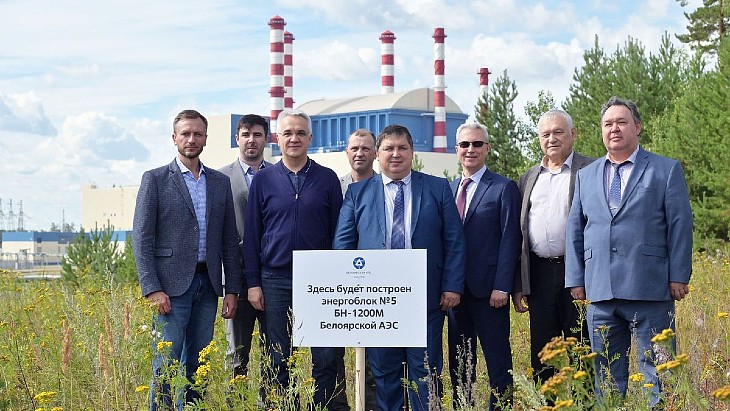According to Rosatom, Rosprirodnadzor said that its investigations showed that "there is no significant impact on the environment" and the project meets the requirements of environmental legislation. The response will be included in documents submitted to Russia's nuclear regulator Rostechnadzor, who will decide on issuing a licence for the proposed new nuclear power unit.
Ivan Sidorov, director of the Beloyarsk nuclear power plant, said that as part of the development of next generation - Generation IV - reactors, Rosatom "is creating a new technological platform for the deployment of nuclear energy of the future, based on fast reactors operating in a closed nuclear fuel cycle". It will be the prototype of a serial power unit, he said, as they seek to move from "single unique projects, such as BN-600 and BN-800", to serial production of the BN-1200. "New technological solutions make it possible to fully utilise the energy potential of uranium raw materials, and also have a new level of safety," he added.
The sodium-cooled BN-series fast reactor plans are part of Rosatom's project to develop fast reactors with a closed fuel cycle whose mixed-oxide (MOX) fuel will be reprocessed and recycled. In addition to the BN-600 reactor, which began operation in 1980, the 789 MWe BN-800 fast neutron reactor - constructed as Beloyarsk unit 4 - entered commercial operation in October 2016. This is essentially a demonstration unit for fuel and design features for the larger BN-1200, which will be unit 5 at Beloyarsk.
Rosatom says the projects at Beloyarsk nuclear power plant, in the Sverdlovsk region, are aimed at "solving the strategic task of the nuclear industry to develop a closed nuclear fuel cycle, which will provide fuel for the nuclear power industry for hundreds of years, allow for the reuse of used nuclear fuel and minimise radioactive waste".





_18570.jpg)
_16159.jpg)
_18938.jpg)
_33584.jpg)





